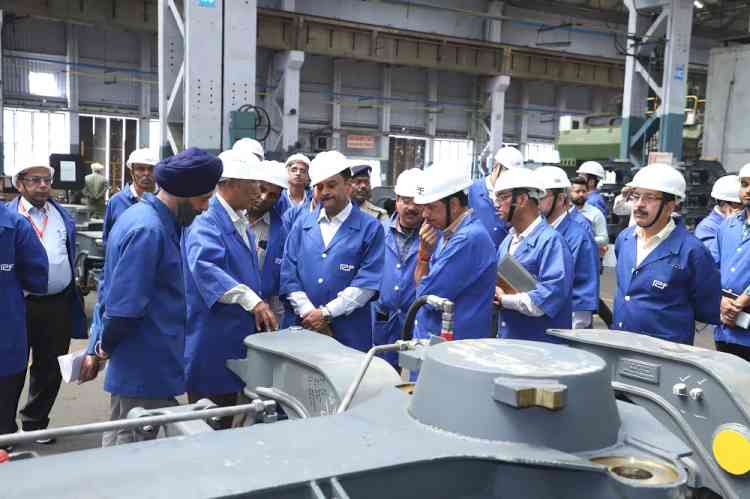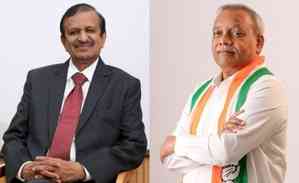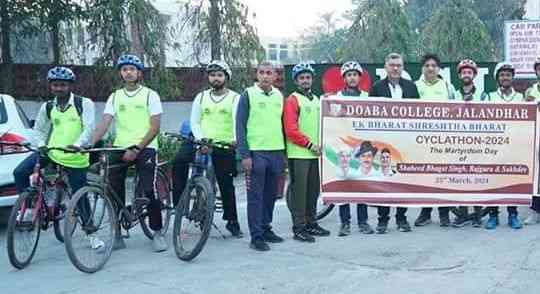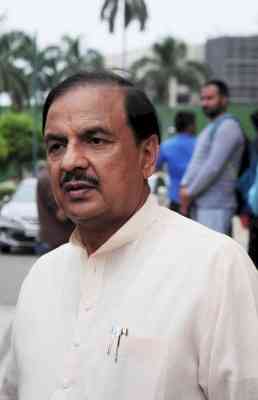The tobacco problem in India is peculiar: Dr. Meenu Walia
Author(s): City Air NewsDr. Meenu Walia, Director of Medical Oncology department, Max Super Speciality Hospital. photo: city air news Tobacco use is the leading cause of preventable illness and death in the United States. Consuming any...


Dr. Meenu Walia, Director of Medical Oncology department, Max Super Speciality Hospital.
photo: city air news
Tobacco use is the leading cause of preventable illness and death in the United States. Consuming any type of tobacco puts you on a collision course with cancer. Smoking has been linked to various types of cancer - including cancer of the lung, mouth, throat, larynx, pancreas, bladder, cervix and kidney. Smokeless tobacco has been linked to cancer of the oral cavity and pancreas. Even if you don't consume tobacco, exposure to second-hand smoke might increase your risk of lung cancer, and many other serious health problems.
Dr. Meena Walia, Senior Medical Oncologist & Cancer Specialist, says, “The tobacco problem in India is peculiar, with consumption in a variety of smokeless and smoking forms. Men use more smoked tobacco, women are more likely to use smokeless (chewed) tobacco, and beedis are smoked more than cigarettes.”
There are many facts to the tobacco problem in India. Tobacco related diseases are preventable, but are still a leading cause of deaths worldwide. The WHO (World Health Organization) says that every year, nearly six million people die because of tobacco use (that is about 10% of all deaths) and 0.6 million of these occur in non-smokers due to second-hand smoke. India is the second largest consumer of tobacco globally and accounts for approximately one-sixth of the world’s tobacco-related deaths.
Tobacco use is a major risk factor for heart attacks, strokes, chronic obstructive pulmonary diseases, apart from peripheral vascular disease and hypertension. Second-hand smoke (SHS) has also been shown to cause adverse health effects in people of all ages. SHS is three to four times more toxic per gram than mainstream tobacco smoke. It kills 6,00,000 people each year and in India, 52% of adults are exposed to SHS at home. The toxic chemicals from SHS cling to rugs, curtains, clothes, food, furniture and other materials even in the presence of windows, air filters. They coat the surfaces of rooms, materials and smokers belonging, and are sometimes referred as third-hand smoke.
“Overtime, a person becomes physically and emotionally addicted to the nicotine found in tobacco. This physical dependence causes unpleasant withdrawal symptoms when one tries to quit. Studies have shown that to quit and stick to it, smokers must deal with both the physical and mental dependence. No matter how old one is, and how long one has smoked, quitting will definitely help you live longer and become healthier. To get started, you can enrol in an anti-smoking support program. Hospitals, health departments, centres and work sites often offer programs,” Dr. Walia adds.
If you don't feel ready to stop smoking completely, your GP may suggest a method of quitting known as nicotine-assisted reduction to stop. This involves using NRT to cut down before you eventually stop smoking. An electronic cigarette (e-cigarette) is a device that allows you to inhale nicotine without most of the harmful effects of smoking. Over recent years, e-cigarettes have become a very popular stop smoking aid in the UK. Evidence is still developing on how effective they are, but many people have found them helpful for quitting.
About Dr. Meenu Walia
Dr. Meenu Walia is a Director of Medical Oncology department, Max Super Speciality Hospital, Delhi. She has over 13 years of experience in the field of Medical Oncology and Haematology. She has special interest in all solid & haematological cancers, breast, gynecological and genitourinary cancers. Dr. Meenu Walia has authored various chapters on oncology and published articles in national & international journals. She was the first DNB Medical Oncologist of India. She served as Director at Dharamshila Hospital & Research Centre.

 cityairnews
cityairnews 















